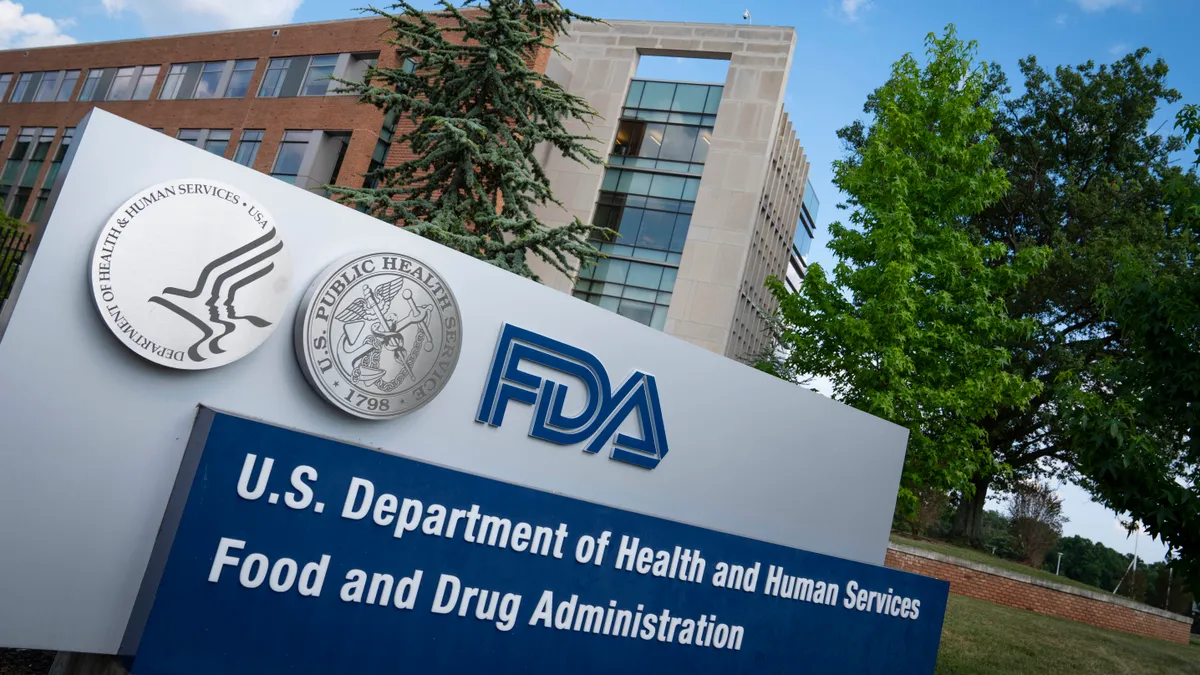Industry and FDA have "fundamentally different" views of the Medical Device User Fee Amendments program, according to meeting minutes that reveal disagreements between the two sides.
The latest meeting minutes over user fees come from a late April virtual event that saw tens of reps from FDA, AdvaMed, Boston Scientific, LabCorp, Medtronic and Roche spend three hours discussing the next MDUFA package. Delayed negotiations got underway in February and quickly exposed divisions between FDA and industry. After meeting again in March and early April, negotiators arrived at the late-April event with points of disagreement to resolve.
FDA used the meeting in early April to set out its vision for its Total Product Life Cycle (TPLC) Advisory Program. The agency framed the program, known as TAP, as a way "to enable earlier, more frequent, and more strategic communication between FDA and sponsors, as well as to facilitate sponsors’ early engagement and coordination with external stakeholders that impact patient access to medical technologies, such as payors and physician professional societies."
Industry attendees questioned the need for TAP and expressed concerns about the willingness of private payors to participate. Having taken the TAP proposal to their members after the meeting, the trade groups used the late-April meeting to reiterate and expand on their opposition to the program.
"Industry has a fundamentally different view of the MDUFA program and its purposes," the minutes state. "Industry believes that some aspects of the TAP proposal, for instance related to convening stakeholders such as private payors, would extend beyond the scope of MDUFA and beyond FDA's purview overall and would require statutory changes to implement. Moreover, industry is concerned that it would drive up program costs and put the fundamentals of the device review program at risk."
Trade group officials expressed concern that TAP will add significantly to the complexity of the premarket review process. The industry wants FDA to focus on making the existing premarket review program more reliable at a time when companies are experiencing delays to submissions or holding off on filing while the agency works through the disruption wrought by the pandemic.
The industry also contends the proposal duplicates existing programs. They argue the breakthrough medical device program already supports extra engagement in the review process and multiple initiatives are already seeking to address the coding and coverage of innovative medtech products.
FDA presented additional details on TAP in an attempt to win the industry over. The agency argued that, rather than add complexity as industry fears, TAP will streamline regulatory engagement while improving the quality of premarket submissions and thereby reducing the number of review cycles. FDA said TAP builds on the lessons it has learned through its engagement with sponsors during the pandemic and addresses requests for more frequent, rapid feedback.
The additional details shared by FDA failed to allay the concerns of the industry about TAP. Citing the same reasons that it gave earlier in the meeting, the industry reiterated its opposition to the TPLC program.
Instead of introducing TAP, the industry wants FDA to take actions including the establishment of hiring and vacancy percentage targets. The industry is also pushing for the reinstatement of the fifth year offset in fees from over-collections. MDUFA I to III included a similar arrangement and, with the carryover balance growing to a "much more significant level" than industry expected when it agreed to rescind the offset for MDUFA IV, the trade groups want to reinstate the term for the fifth iteration.
FDA said it would consider the proposals but downplayed the likelihood of leadership agreeing to the offset. The "significant concerns" raised by the agency about the proposal reflect "the negative effects" that had caused FDA to seek — and industry to support — the removal of the provision from MDUFA IV.
The industry and FDA were scheduled to meet again to continue negotiations in May.











